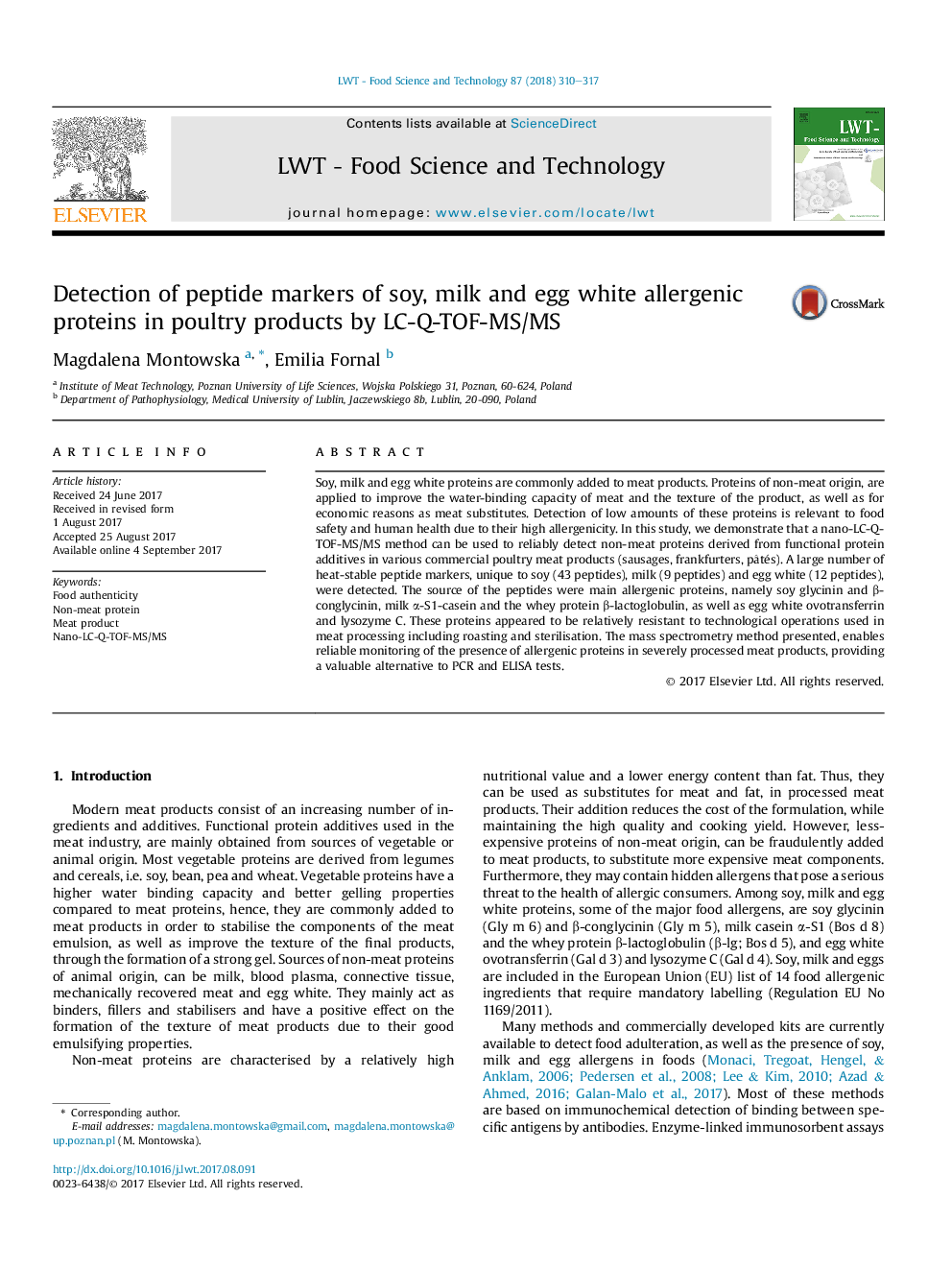| Article ID | Journal | Published Year | Pages | File Type |
|---|---|---|---|---|
| 5768621 | LWT - Food Science and Technology | 2018 | 8 Pages |
â¢Cooked, smoked, roasted and sterilised meat products were examined.â¢Protein screening of heat processed products was performed using mass spectrometry.â¢The main soy, milk and egg white allergenic proteins were detected.â¢Unique peptide markers of soy, milk and egg white were identified.
Soy, milk and egg white proteins are commonly added to meat products. Proteins of non-meat origin, are applied to improve the water-binding capacity of meat and the texture of the product, as well as for economic reasons as meat substitutes. Detection of low amounts of these proteins is relevant to food safety and human health due to their high allergenicity. In this study, we demonstrate that a nano-LC-Q-TOF-MS/MS method can be used to reliably detect non-meat proteins derived from functional protein additives in various commercial poultry meat products (sausages, frankfurters, pâtés). A large number of heat-stable peptide markers, unique to soy (43 peptides), milk (9 peptides) and egg white (12 peptides), were detected. The source of the peptides were main allergenic proteins, namely soy glycinin and β-conglycinin, milk α-S1-casein and the whey protein β-lactoglobulin, as well as egg white ovotransferrin and lysozyme C. These proteins appeared to be relatively resistant to technological operations used in meat processing including roasting and sterilisation. The mass spectrometry method presented, enables reliable monitoring of the presence of allergenic proteins in severely processed meat products, providing a valuable alternative to PCR and ELISA tests.
